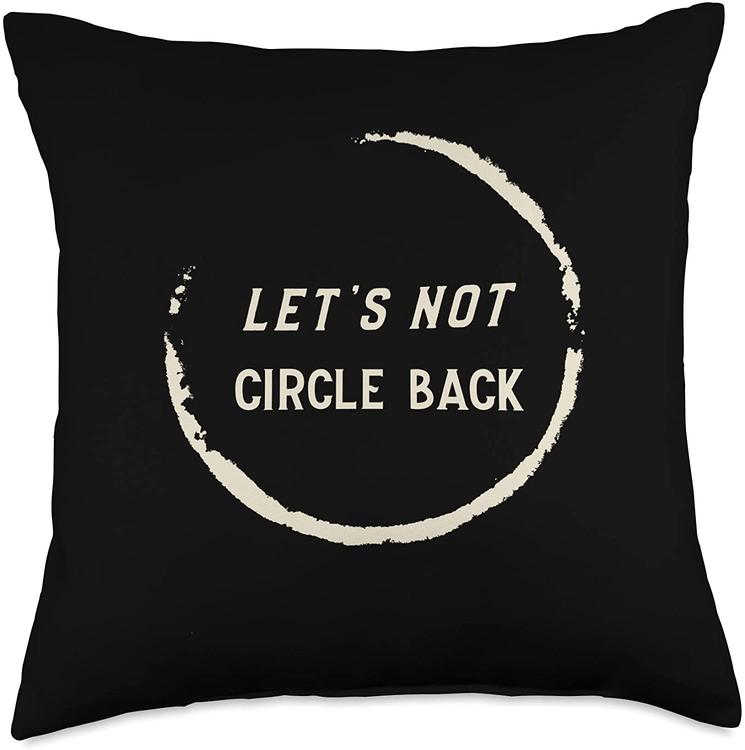Deciphering office jargon is something easier said than done. Whether it’s in a physical office or in an email during the work-from-home revolution, work talk fluffed with cliche business terms can often leave recipients with a headache trying to understand what the meaning behind the phase is.
Annoying cliches or phrases are used to save timelike sending a three-lettered acronym to a friend, but the meaning isn’t always as clear as “ILY” (I love you) in a text message.
Understanding what a colleague or manager is trying to say shouldn’t be as hard as reading ancient texts. Work without buzzwords and acronyms would make just about everyone’s lives a little bit easier but with everyone on the go and unread emails compiling in inboxes, there’s reasons why these words or phrases are used.
So today, we’re going to talk about “circle back”. The phrase is often used when someone wants to discuss something at a later time, maybe because they aren’t ready to discuss it or perhaps they didn’t get the answer they wanted to hear the first time. The space in between creates question; with question comes problem and anxiety usually follows shortly.
The most annyoing work phrase ever?
Thirteen percent of workers called it the most annoying phrase used in the office. In a post discussing “soul-sucking corporate phrases”, Los Angeles Magazine listed circle back as annoying jargon used in the office. Here’s their take on the phrase:
“Why is this so crushing? Maybe because it so instantly rolls off the tongue. It’s used so quickly. Hey, maybe I want to get into it right then and there and I should feel like I can, instead of being thoroughly dismissed, because ideas and thoughts and inspiration come when they come, so don’t tell me to siphon off my creativity, and clip my wings and undermine me automatically and assume you’ll always have a better idea.”
CNBC called for the phrase to be banned from offices:
When your supervisor tells you he or she will “circle back” on an issue, it means “to discuss it later.” Mike Wolfe, co-founder and CEO of WAM Enterprises in Katonah, N.Y., said that it’s one of his most disliked examples of office jargon.

“It usually means we just had a meeting where nothing was accomplished, and we need to ‘circle back’ to have another pointless meeting,” he said.
What exactly does it mean to circle back?
Office jargon was created to make everyday tasks easier, but what someone says and means doesn’t always come out the other way as intended. We are humans and we all have different thought processes.
“I think [circle back] is a passive term,” Keystone Partners Vice President Brenda Stanton told Ladders recently. “In an email, you would use it if you wanted to return back to a previous conversation. It’s something you’ve discussed and you want to return back to it. There’s some context; you both know what you’re going to talk about.”
When to avoid using circle back
Circle back isn’t as harmful as it’s annoying, but there are times you want to avoid using it, such as when a decision has to be made sooner rather than alter.
“I wouldn’t use it if there’s something like a deadline because it’s very passive,” Stanton said. “If you need a decision made, I don’t think someone is going to want to hear circle back. It’ll either annoy them or upset them.”
Stanton said be wary about context. If someone comes forth with an idea they think is brilliant, it’s important to remain empathetic even if you don’t have the time to dive into the idea at the moment. Office jargon can come off as unoriginal and mocking, so it’s important to be mindful of the situation.
“I think it could be upsetting or detrimental or insulting to somebody if they really need an answer or a decision has to be made. If someone says ‘let’s just circle back,’ that person is being seen as noncommittal and not being able to make a decision,” Stanton said. “If you’re in a process of contemplation or working on strategy and things that do require contemplative thought, then I would say that it could be used and it would make sense that you would circle back. I don’t think there’s harm but it just depends on the context.”
Other ways to say circle back — without saying it
Stanton said if you’re trying to buy some time, circle back is a good term to use but there are ways to say it without saying it.
Here’s what she suggested:
Both seem less passive and sound more welcoming. With the coronavirus pandemic shuffling workers remotely and likely for much, if not all, of 2021, it’s important to remember that the space the office provided for clarification and interaction is not there at the moment.
“Technology is amazing but it’s never going to replace the human interaction. You can align these terms with the same thing: when we’re not having physical interactions where we’re not in person, how can you make it more human through your communication,” Stanton said.
She added: “Especially now because we want people to feel more valued and appreciated and building more trust in the remote world. Especially with emails, without having the face-to-face, words are more literal too.”
